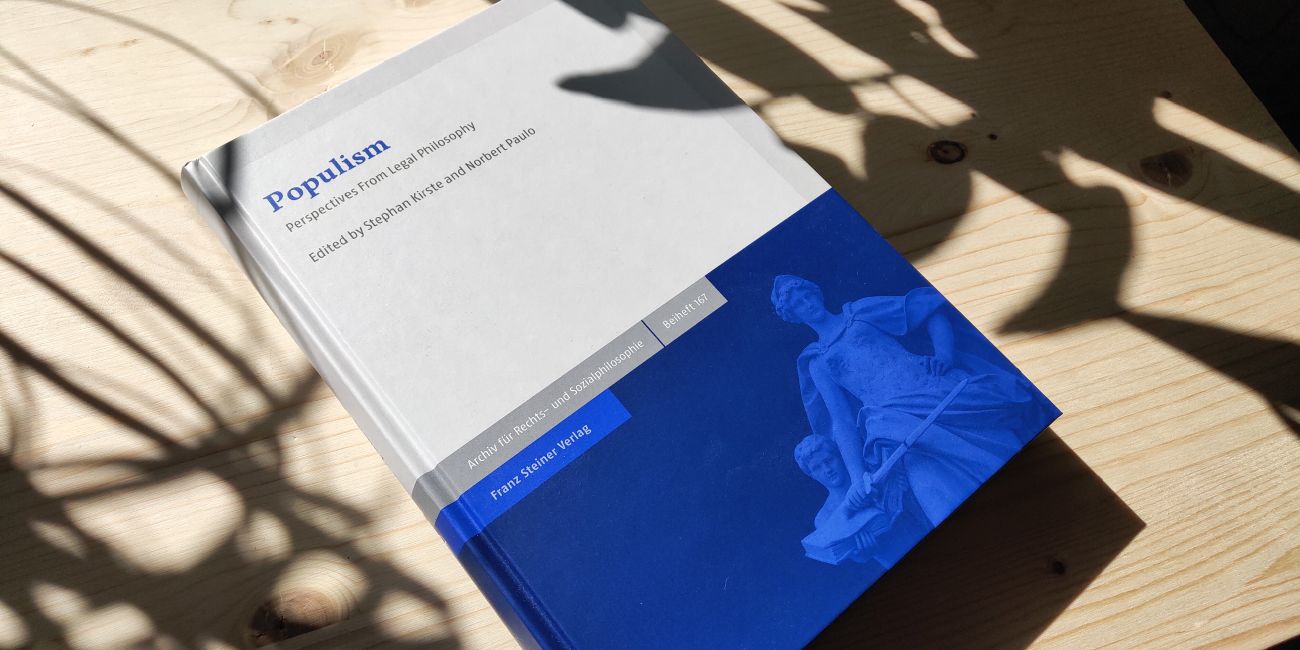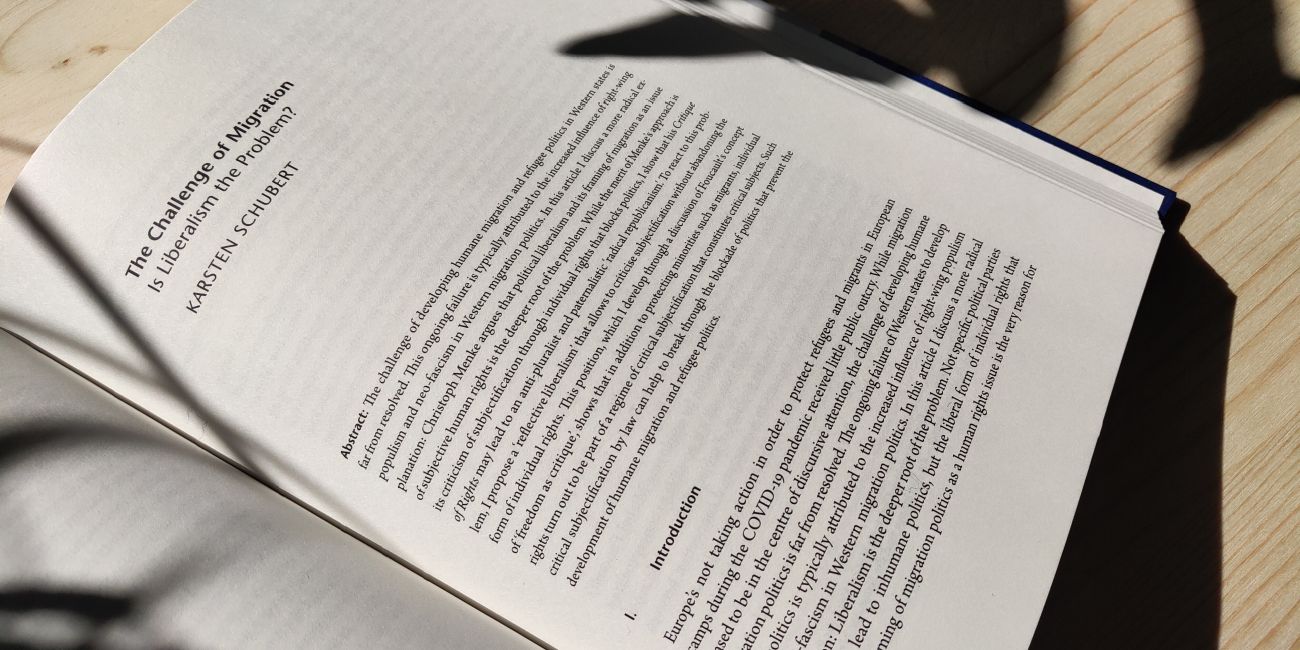New Publication: The Challenge of Migration. Is Liberalism the Problem?

Is it because of political liberalism that refugees and migrants are treated inhumanely and their rights are disregarded? I discuss this question in the new article published in the supplements of the Archives of Philosophy of Law and Social Philosophy. I argue with Christoph Menke that liberal subjectivization leads to desolidarization and depoliticization. Against Menke and with Foucault, I develop a “reflexive liberalism” that recognizes the importance of subjective rights and yet criticizes the depoliticizing effects of liberal subjectivation. Reflexive liberalism allows us to defend the human rights of migrants and refugees while criticizing the pathological effects of the underlying individualist legal regime.
I am very pleased to be included in this volume “Populism - Perspectives From Legal Philosophy” edited by Stephan Kirste and Norbert Paulo. It is a great collection of important texts on the legal theoretical analysis of populism and I recommend the other exciting contributions: https://elibrary.steiner-verlag.de/book/99.105010/9783515129640

Abstract
The challenge of developing humane migration and refugee politics in Western states is far from resolved. This ongoing failure is typically attributed to the increased influence of right-wing populism and neo-fascism in Western migration politics. In this article I discuss a more radical explanation: Christoph Menke argues that political liberalism and its framing of migration as an issue of subjective human rights is the deeper root of the problem. While the merit of Menke’s approach is its criticism of subjectification through individual rights that blocks politics, I show that his Critique of Rights may lead to an anti-pluralist and paternalistic ‘radical republicanism’. To react to this problem, I propose a ‘reflective liberalism’ that allows to criticise subjectification without abandoning the form of individual rights. This position, which I develop through a discussion of Foucault’s concept of ‘freedom as critique’, shows that in addition to protecting minorities such as migrants, individual rights turn out to be part of a regime of critical subjectification that constitutes critical subjects. Such critical subjectification by law can help to break through the blockade of politics that prevent the development of humane migration and refugee politics.
Cite and download
Schubert, Karsten (2021): The Challenge of Migration. Is Liberalism the Problem? In: Archives for Philosophy of Law and Social Philosophy, Vol. 167: Populism. Perspectives From Legal Philosophy (ed. Stephan Kirste, Norbert Paulo), 173-192.
Final Manuscript
Academia.edu
Related Posts
- Special Issue: The Dissolution of the Liberal Consensus (ZfPT), 25. January 2024
- New Publication: 'Liberalism and the Construction of Gender (Non-)Normative Bodies and Queer Identities', 22. March 2022
- CfP: Special Issue 'The Dissolution of the Liberal Consensus' of the Journal of Political Theory (ZPTh), 18. January 2021
- New Publication: Institutionalization of Freedom in Law. Foucault and the Post-Marxist Critique of Law, 12. October 2020
- New Article: Democratization Through 'Cancel Culture' — Three Levels of Artistic Freedom, 21. April 2023